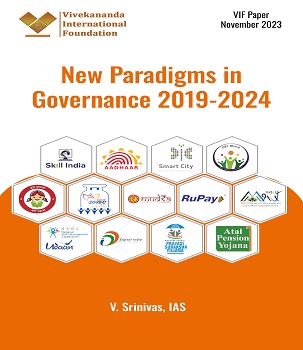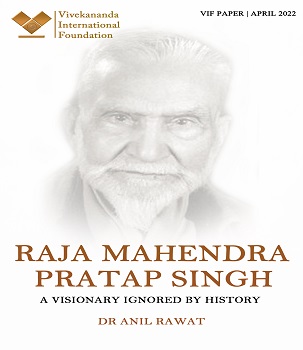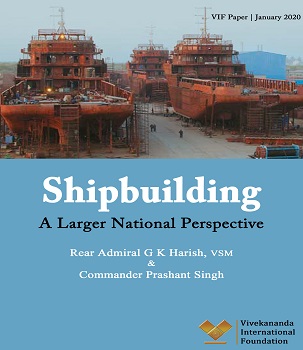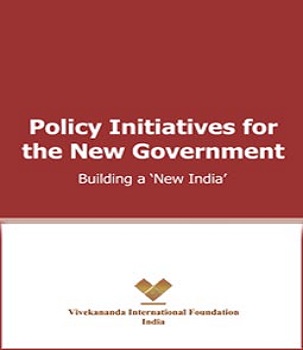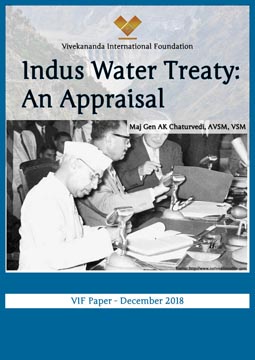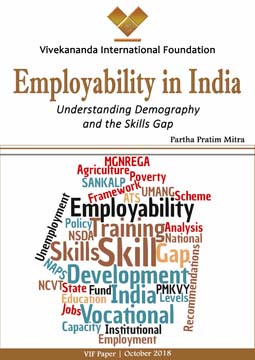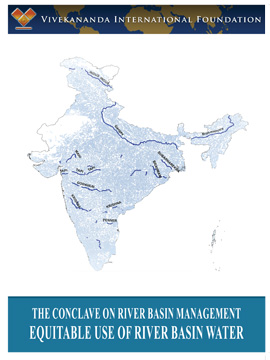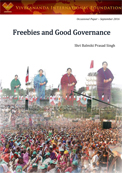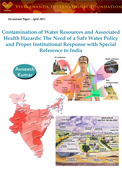Under the visionary leadership of Prime Minister Modi, the Governance landscape of India has radically changed in scale, scope and learning paradigms. India has succeeded in transforming technologically obsolete institutions into modern day digital institutions which benefit millions of Indians. Today India’s rural country side has changed - banking Correspondents, e-Mitras and common service centers have bridged the gap between internet poor and internet rich.
....he established the ‘Provisional Government of India’ (Hakumat-e-Mokhtari-i-Hind) in Bagh-e-Babur in Kabul on December 1, 1915 … Pratap became the President for Life or until the Government was handed over to Congress … Maulana Barkatullah Khan as the Prime Minister and Obeidullah Sindhi as the Home Minister, Champak Raman Pillai as the Foreign Minister and Maulana Bashir as the War Minister …
… shipbuilding industry can be a major employment creator with relatively large spin-offs for ancillary industries unlike the automobile and other manufacturing industry … shipbuilding industry has not received the required attention and focused view of competing priorities, uncertainties and lack of assurance on short term returns on government policy measures ... it is essential to galvanize the shipbuilding as a strategic infrastructure industry with the required policy, legislative and institutional measures …
On May 30, 2019, the National Democratic Alliance (NDA) government led by Prime Minister Modi was sworn in after the NDA registered an unprecedented 350 seats in the Lok Sabha. The new government will undoubtedly continue to implement the various good policies that it initiated in 2014-2019. However, the ambition of building ‘New India’ will require deeper reforms in a variety of areas.
… a Task Force to review the IWT is a good move and hopefully it will help India in creating adequate water management infrastructure in a time bound manner so that she is able to utilise all the waters that she is entitled to harness. The unending debate over ‘Rights of Pakistan vs Needs of India’ may be left to continue without having to abrogating the IWT …
… skill development programmes must begin at the primary school level … vocationalisation of education should be introduced to prevent drop-outs … curriculum of vocational education must take into consideration the local resources and natural skills of the region … assessment of the human resources and career counselling must begin very early in schools and integrated manpower planning at the district level should be encouraged …
Introduction Water Management in India has always been a challenge because of large temporal and spatial variations in its availability. The task is becoming more challenging due to global warming having significant impact on water availability both in space and time. The challenge is accentuated by the increasing population pressure and uses, resulting in water scarcity in many areas.
Background and Argument I have chosen to speak on a subject of contemporary interest and importance: ‘Freebies and Good Governance’. I deliberately withheld the umbrella in suggesting the title of the talk that provides both inspiration and legitimacy to ‘freebies and good governance in India’ and this is the concept of ‘welfare state’. Click here to read full paper
Introduction During the nationalist movement and struggle for independence, there was little attention paid to articulation of India’s defence and security policies by the Indian National Congress (INC). Allusions to concepts and precepts of defence of an independent India were entirely absent from INC party resolutions and documents or for that matter in the speeches of the political leadership. Click here to read full Paper
Abstract In this research paper the author has discussed the different aspects of water borne diseases, their impact on human health and means for ensuring safe drinking water in the country. Water borne diseases are a big burden on developing countries like India. The availability of safe drinking water would be a grave challenge for the government as the population of our country is rising sharply, and as per some estimates, by 2025 half of the nation’s population would be residing in urban areas.

